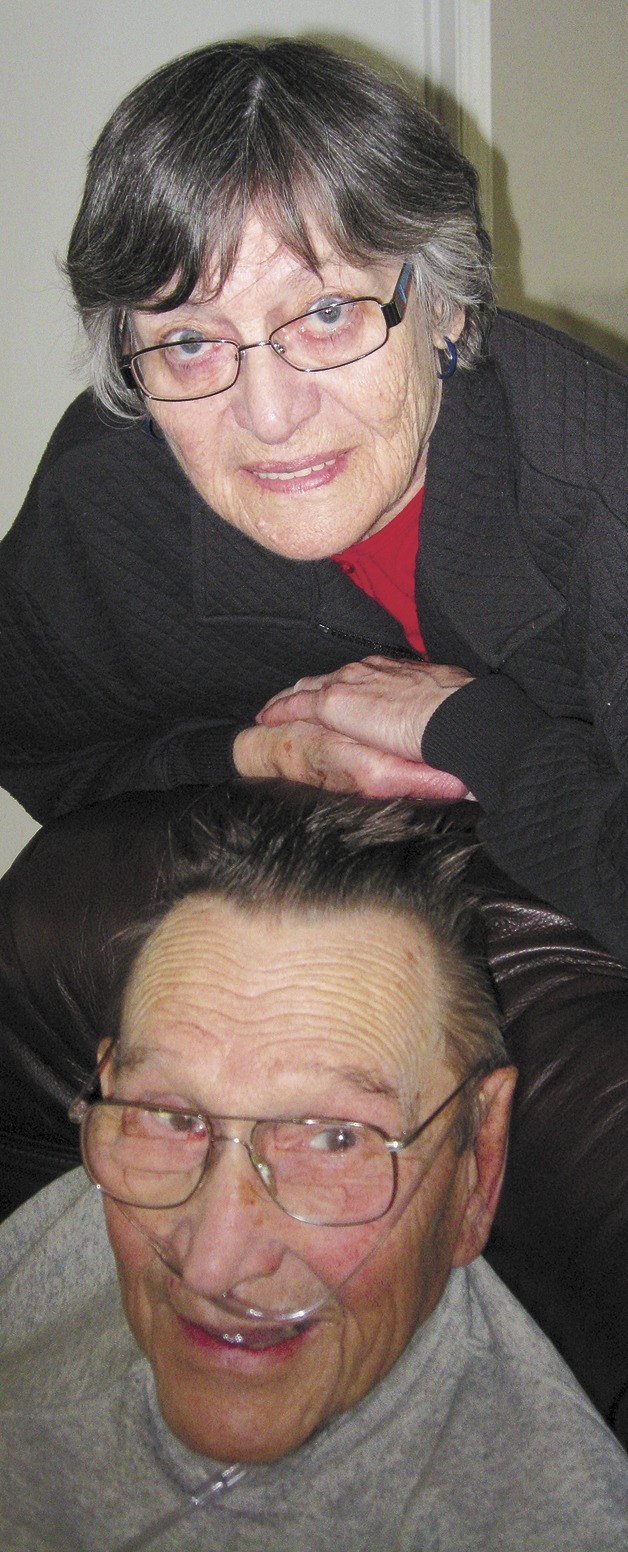Entrenched in a vulnerable foxhole on a hostile Pacific island, Bill Warren felt an indescribable fear, a maddening hell.
To this day, the former Army infantryman doesn’t know how he survived more than two years of steady combat in World War II.
“I couldn’t tell you what kept me going, but I was lucky,” said Warren, now 86 and living quietly with his wife, Irene, in bucolic southeast Auburn. “We had a job to do, I guess, and you had to do it.
“There was never a moment when you were not scared,” he said, his eyes welling with tears. “Someone was always getting shot, getting killed. In the jungle, it’s bad because you couldn’t see the enemy.”
Warren was a soldier of good fortune. He survived the horrors of the Pacific War, a call of duty that saw the young man make seven island assault landings in the Pacific theater from 1942-45 with Company B, 163rd Infantry, 41st Division.
While many of his fellow soldiers never came home, Warren did, but not without some emotional wounds and physical scars. He took a bullet through the back. Shrapnel nicked his wrist. Bullet holes pocked his backpack.
For 15 years following the war, he had trouble sleeping. He often played back those traumatic days of fierce firefights with Japan.
Yet, when called upon, he would do it again.
“I served this country,” said Warren, a decorated sergeant who earned the Bronze Star Medal for service. “This is a country I love.”
As America honors those who died serving the country this Memorial Day weekend, Warren will spend it at home with family. He will remember those friends he lost and those who remain close to him today.
For Warren, each day is precious. Strapped to a ventilator, Warren battles terminal lung cancer.
“I don’t have too much time,” he said. “I’m just trying to hang in there. I’m day-to-day, you could say.”
Warren’s life story is one of commitment, service and survival. A self-made man, he followed his heart and showed his courage.
The Canadian-born boy was the son of a carpenter. His father was Scottish and Irish, his mother part Chippewa Indian.
Living in Montana during the Great Depression, a penniless and restless Warren decided at 16 years of age to go on his own. With only an eighth-grade education, he enlisted in the Army National Guard.
“We didn’t have anything going back in those days,” Warren said. “You couldn’t buy a job, you couldn’t get a nickel anywhere. … I didn’t want to hold onto my folks for too long, so I moved on.”
About the time Warren joined the Army, tensions mounted with Japan in the Pacific. He trained at Fort Lewis and remained stateside to patrol the mainland. When war was declared, the 132-pound infantryman soon was shipped overseas.
Trained in jungle warfare in Australia, Warren got his first taste of combat on Jan. 1, 1943 in New Guinea. The Battle of Buna–Gon was a prolonged heavy fight in brutal conditions. By the end of the month, Allied forces had overcome the defenders. Casualties were extremely high. Lt. Gen. Robert L. Eichelberger later compared the casualty ratio to the American Civil War. The percentage of casualties, killed or wounded in action at Buna exceeded the better known Battle of Guadalcanal.
“The conditions were atrocious. Some nights we had to wade in water up to here,” said Warren, raising his hand up to his neck. “In the foxhole, you had so many things going on. … And there were wild hogs, (large) land crabs, snakes … things that kept you on your toes.
“It was terrible,” Warren added, “but it was the first defeat for Japan.”
Warren and his company would go on to make six other amphibious landings in the Pacific. In command of a machine gun, he spent much of his fighting days in a foxhole positioned close to enemy lines. In fact, the front lines were so close sometimes that Warren could hear the enemy snoring at night.
With few breaks, the fighting was constant for Warren until one July day in ’45 when a sergeant approached and offered him a promotion in exchange for an extended stay.
Warren, weary from an all-night firefight, respectfully declined.
“I kind of had a hunch we were going to (invade) Japan, so I said, ‘No, I came over here with nine lives, and I spent eight of them already. I’m not going to take a chance with the last one.’ ” Warren recalled.
In the years that followed, Warren married Irene and they raised a son and daughter. The family moved to the Auburn area to stay in 1957. Warren worked as an auto mechanic, log truck driver, welder and fabricator. He enjoyed the outdoors and fishing. He raced stock cars and dragsters.
He stayed active, even in his later years. At 75, he went skydiving.
A lifetime member of VFW Post 1741 and the American Legion, Warren was the leading force in the design and construction of the Veterans Memorial in the old city park. The Post donated the pole to the city and installed a plaque on the pole in Warrren’s honor.
In addition, Warren belonged to the Intertribal Warriors Society.
“Bill is a gentle man who you can always depend on in supporting Post leadership positions and activities,” said Bill Peloza, Auburn City councilmember and VFW Post 1741 commander. “Everyone loves Bill. He is fun to be around and discuss various issues.”
A few years ago, Warren received an honorary diploma from Auburn High School.
Today, he enjoys an extended family that includes three grandchildren and two great-grandchildren.
“I was one of the lucky ones,” he said in retrospection. “I’ve had a good life and a good family.
“I lived it day-to-day, nothing special. You just had to hang in there.”


